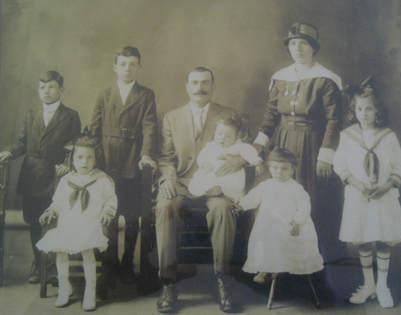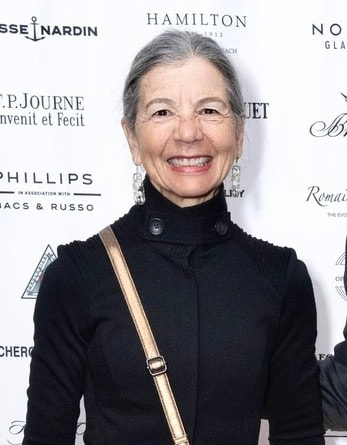 My grandparents, father (the infant), and his siblings, c. 1920.
My grandparents, father (the infant), and his siblings, c. 1920. It never occurred to me to be incensed by Herbert J. Gans for having written The Urban Villagers: Group and Class in the Life of Italian-Americans. Published in 1962, long before the recent discussions over cultural appropriation, the book is a German-born sociologist's study of life in Boston's West End shortly before urban renewal destroyed the neighborhood. I discovered it in the early 1990s while working on Huddle Fever, my account of the decade I lived in the city of Lawrence, Massachusetts. When Paul Theroux reviewed my book for the New York Times, he remarked: "At one time such personal accounts of closely observed residence would be concerned with distant cities: 'Rangoon Jottings,' 'Ten Years in Khartoum,' 'A Decade in Bangkok.'" It had not escaped Mr. Theroux that I felt as if I had embarked on life in a foreign country when I moved there. Until then, I had lived in only two other places, Greenwich, Connecticut, my home town, and Washington, D.C., where I went to college and where I remained after graduation for the next 11 years. (My addresses in the Washington area were Foggy Bottom, Georgetown, Capitol Hill, and Takoma Park, Maryland, which is just over the D.C. line.) And yet despite having never lived in a mill town, there was something very familiar about Lawrence. All four of my grandparents had been Italian immigrants to Greenwich in the late 19th and early 20th centuries, like those who settled in Lawrence at the same time. My parents, although they had ostensibly assimilated, had failed to shed at least a few of their parents' old world ways. In attempting to understand Lawrence, I ended up gaining insights into the people who had raised me 200 miles away, and the Gans book was one of my guides.
A Gans finding that particularly resonated with me was that the people in his study regulated their behavior by what he called "involuntary conformity of the type expressed in the phrase 'what will the neighbors think.'" In my case, my mother extended the term "neighbor" to my mail carrier in Georgetown, as in "What will the mailman think?" -- her verbatim question -- when I decided to keep my name after my marriage in 1973. Another of Gans's revelatory analyses was that the West Enders' child-rearing practices were "adult-centered" as opposed to the middle class's "child-centered" ones. I.e., for better or worse, life did not revolve around the children in those working-class households, just as they had not revolved around me in mine. E.g., I watched my mother play tennis instead of the other way around.
I wish I had read Gans sooner. My parents' paramount interest in their social life and status among their peers would have made much more sense. So, too, would have my grandparents' extreme "routine-seeking" -- e.g., cooking and eating the same food on the same day each week. That a non-Italian-American wrote this book doesn't matter a hoot to me. Besides, I believe an "outsider" was better suited to the task of being its author. As the saying goes, he had no dog in the fight. All he wanted was to discover and disclose the truth. That's a valid model for anyone of any stripe.
To be continued.
A Gans finding that particularly resonated with me was that the people in his study regulated their behavior by what he called "involuntary conformity of the type expressed in the phrase 'what will the neighbors think.'" In my case, my mother extended the term "neighbor" to my mail carrier in Georgetown, as in "What will the mailman think?" -- her verbatim question -- when I decided to keep my name after my marriage in 1973. Another of Gans's revelatory analyses was that the West Enders' child-rearing practices were "adult-centered" as opposed to the middle class's "child-centered" ones. I.e., for better or worse, life did not revolve around the children in those working-class households, just as they had not revolved around me in mine. E.g., I watched my mother play tennis instead of the other way around.
I wish I had read Gans sooner. My parents' paramount interest in their social life and status among their peers would have made much more sense. So, too, would have my grandparents' extreme "routine-seeking" -- e.g., cooking and eating the same food on the same day each week. That a non-Italian-American wrote this book doesn't matter a hoot to me. Besides, I believe an "outsider" was better suited to the task of being its author. As the saying goes, he had no dog in the fight. All he wanted was to discover and disclose the truth. That's a valid model for anyone of any stripe.
To be continued.
 RSS Feed
RSS Feed
